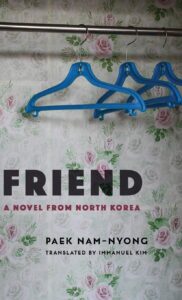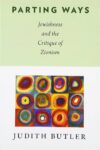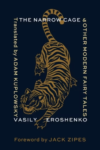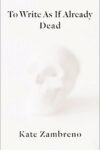
[Columbia University Press; 2020]
Tr. from the Korean by Immanuel Kim
Political rhetoric in the United States media reduces North Korea to only criticism of its leader. To summarize the ubiquitous narrative: Currently, 36-year-old Kim Jong-un, a third-generation dynastic autocrat, leads the ironically named Democratic People’s Republic of Korea (DPRK). Kim’s father, Kim Jong-il, ruled the nation after his father, Kim Il-sung, founded the communist state. Kim Il-sung implemented both an authoritarian military regime and a far-fetched personality cult a-la-Mao or Stalin that endures to this day. A foil for every US president, North Korea threatens the world with nuclear weapons while depriving its citizens of things the US takes for granted, like free speech, international travel, and Disney. When they’re not marching in elaborate military parades or participating in enormous choreographed dance numbers, North Koreans are starving, suffering in prison camps, or trying to escape. DPRK’s government tightly controls what information filters out of the country, which means much of what outside media hears comes from escaped refugees. When tourists do visit, there aren’t a lot of people on the streets or in stores, and the government sends a shepherd with them to limit what they can see. Oddly, when they’re not swapping playground-level barbs, US President Donald Trump and Kim Jong-un are buddies, a relationship established through mutual friend, Dennis Rodman, best known as a forward for the Chicago Bulls basketball team.
This is the background with which I, like many American readers, began reading Paek Nam-nyong’s 1988 novel, Friend. Friend offers a rare glimpse of what North Korean literary culture was like thirty-two years ago, the same year Kim Il-sung had a plane from Baghdad bound for the Seoul Olympics blown up with two bombs, killing many South Korean athletes. It was also the year Donald Trump first publicly expressed interest in the US presidency.
Paek Nam-nyong belongs to the April 15 Literary Production Unit, a regime-sanctioned group of writers tasked with chronicling the saga of the Kim dynasty. Socially, he’s about as far from the dissidents we usually hear from as you can get, not an outcast but an ordained scribe of the country’s approved story. Immanuel Kim’s new translation of Friend is entering a volatile political atmosphere as the US’s David vs Goliath posture war with DPRK is giving way to a truly terrifying escalation with China. Luckily, we have the star of NBC’s hit reality series “The Apprentice” at the helm of our giant military arsenal and diplomatic machine.
The plot of the novel revolves around a judge, Jeong Jin Wu, who must choose whether or not to grant a divorce to a couple with a young child. The woman, Sun Hee, and her husband, Lee Seok Chun, began their relationship when both were lathe operators in a factory. Ten years into their marriage, Sun Hee’s incredible singing voice has propelled her to celebrity while Lee Seok Chun remains a lathe operator. Sun Hee becomes fed up with Lee Seok Chun’s complacency. She nags him to go to engineering school and aspire to something greater, which Lee Seok Chun takes as her looking down on him. Once Sun Hee initiates the divorce process, Judge Jeong Jin Wu becomes personally involved in their lives, including with their son, Ho Nam. While investigating and counseling the family, Jeong Jin Wu introspectively reflects on his relationship with his absent scientist wife, Eun Ok. Many years before the opening of the novel, Jeong Jin Wu and Eun Ok met at a treatise Jeong Jin Wu was delivering on marriage — a Russian doll theme-within-a-theme that sets up a contrast between the Judge’s family and the one he ministers to during the story.
To be transparent, Friend is overtly propagandistic, featuring many lines like: “He who diligently carries out the Party’s directives is the true bearer of noble consciousness and character.” The story sways between heavy-handedly didactic dialogue in some scenes and thoughtful realism in others. Western standards might call the novel melodramatic or moralistic. A reader could certainly find plenty in the novel to reinforce a critical view of DPRK’s ideological totalitarianism, but that’s not what makes Paek’s story interesting.
What makes the novel fascinating are the depictions of a class-integrated society and the chance to see North Korean values, which are never discussed in Western media’s permanent focus on the Kims and their atrocities. Our monolithic view of DPRK emphasizes ongoing human rights abuses and it’s likely that a wariness to present North Korean citizens as anything but victims intends to obviate international complacency with Kim Jong-un’s internment camps and denial of basic rights. Contrasting with Friend, survivors’ reports of North Korean life are truly harrowing, especially those confined inside the prison camps and subjected to torture. One has to wonder if DPRK state media is reporting on migrant women given hysterectomies against their wills in US internment camps.
The novel doesn’t comment on class integration, instead it’s depicted as an established social order. Lee Seok Chun and Sun Hee remain married after her rise to stardom, providing the first example of the class integration depicted in the novel. Children go to school together; there are no class-segregated public schools or private schools for higher class children. In the US, a judge and teacher are both government-funded public servants, but class distinctions make it hard for us to picture them as social equals, yet Judge Jeong Jin Wu lives in the same building as a schoolteacher. As they pass and exchange a few words, he reflects on his admiration for her, thinking, “She possessed the secret riches of humility, gentleness, and virtue that won the respect of her colleagues, students, community members, and husband. She was a pure, dignified, and honest woman who valued the worth of her students and the nobility of her occupation.” Far from looking down on teachers like many Americans, he appreciates her necessary role in society and the diligence with which she performs it, a far cry from the “they get summers off, so we should barely pay them a living wage” attitude so prevalent in the US. Overstated as the sequence on the schoolteacher may be, the story demonstrates an essential value — everyone who tries hard and performs their work with dignity deserves respect.
Were I given the option to live in the QAnon-believing, largely-on-fire, maskless, McConnell-lead United States or the gentle communism depicted in Friend, Chinese humanitarians would be smuggling me into North Korea. The novel’s version of DPRK is nearly utopic, perhaps because totalitarian media controls art and directs its purposes to propaganda. When the novel educates and influences the populace, the Party guides its citizens to become the people depicted in the book. Its propagandistic properties may feel heavy-handed compared to how US media propaganda ties our citizen’s worth to employment, earnings, and conspicuous consumption, but if it seems weird that a government would control the content of novels, remember the US government forces producers to blur out just female nipples, not male nipples, though objectively and biologically both are simply nipples — this is sexist and misogynistic propaganda censuring a natural part of the female body. So, it’s worth remembering that propaganda can take many forms, from a nightly newscast to a work of fiction.
In terms of plot, Friend is about how divorce harms the community, the negative impacts it has on children, and how people need to be willing to reflect, accept criticism, and change in order to restore a marriage. Jeong Jun Wu says, “The law protects the entity of the family, as it is a component of society. It’s not an easy matter to destroy a piece of the nation. Divorce disconnects the relationship between a husband and wife. It’s not a personal matter or a matter that can be decided by executive administrators . . .” To save a piece of the nation, the Judge learns about the family through their community. It’s hard to believe an administrator would invest himself in his work with such personal good intentions toward citizens, but it’s also hard to believe that the President of the United States won’t wear a mask during a pandemic, or that he would lie about how bad a pandemic would be while saying on tape to the most famous journalist in the country that he knew the disease was incredibly virulent and transmissible all along.
While an anti-divorce novel might seem very conservative, the characters are sometimes complex enough to avoid feeling overly quaint. The Judge holds some traditional views about gender roles, but he is also willing to sacrifice his gender role to support his wife and sustain his marriage. His wife, Eun Ok, is away most of the time, genetically engineering plants in the harsh climate of her home region, and Jeong Jin Wu’s sacrifice to their marriage is to make his own dinner, water some plants, and take care of his own clothes. The novel clearly shows a North Korean expectation that women must be comrade, mother, caretaker and wife. Judge expects to share his marital flexibility and empathy with the other characters, including Sun Hee (who he sees as full of herself and nagging) and Seok Chun (who the Judge considers obstinate and complacent) whose verdicts are delivered with kindness. The Judge is the representative of the government, but he is also a friend. In a sense, he is an avatar for the Party’s judgement and compassion. The Party works through him and that means it works with genuine concern or kindness.
Paek struggles to depict women. Eun Ok, who defies her gender role, is absent for most of the novel and Sun Hee largely falls victim to vanity and lack of emotional control, stereotypical female shortcomings. A consumer of American media will certainly recognize these stereotypes, as they are ever-present in our media as well. A point of connection need not be positive.
With this in mind, I will say the people in the story are more relatable than expected. Raising children, cooking dinner, tending to projects, celebrating with friends, dealing with dishonest neighbors, suffering setbacks, feeling lonely, and more — the unavoidable things that take up hours of our days — also occupy North Korean days. Paek’s portrayal of daily life is, in my opinion, the most compelling non-political reason to read Friend. Knowing that the DPRK government stocks fake supermarkets and stage fake malls for tourists does make a reader question how much North Korean life really resembles the community in the novel — Paek never addresses tyranny or adverse conditions (which may get him killed or imprisoned). Kim Il-sung is not mentioned by name and “the Leader” is infrequently invoked. Not everything in North Korea, it turns out, has to be about the Leader.
Americans, with our own bizarre leader and his cult of personality, should read Friend precisely because we can no longer consider DPRK as ideologically contrary to the US as we once could. With Trump’s tendency to behave dynastically by installing his children in roles better suited for experts, with his human rights abuses against migrants and people of color, and in light of our own propaganda-controlled populace, the novel demonstrates that society persists even when the government loses its mind and becomes tyrannical. The tyranny of democracy, even a flawed democracy, pales beside what autocrats have delivered to history.
Rather than DPRK opening up and becoming more like western societies, it appears many US citizens are embracing authoritarianism, propaganda, and leader-worship — ideologies that not only dominate in North Korea and have a long history in the United States, but that are creating contemporary parallels between the two. For example, when Kim Jong-un had a military parade, Donald Trump wanted one, too. But that ridiculousness, pervasiveness and as depressing as it may be, is not all that defines our society. Paek Nam-nyong reminds us that the local and interpersonal elements of our lives are just as real as the ideological and political, and certainly tell more about what it means to be human.
Eric Aldrich’s recent work has appeared in Hobart, Manifest West, The Worcester Review, and The Arcanist. His novella, Please Listen Carefully as Our Options Have Changed, is forthcoming from Running Wild Press. You can follow Eric via ericaldrich.net or @ericjamesaldrich on Instagram.
This post may contain affiliate links.







